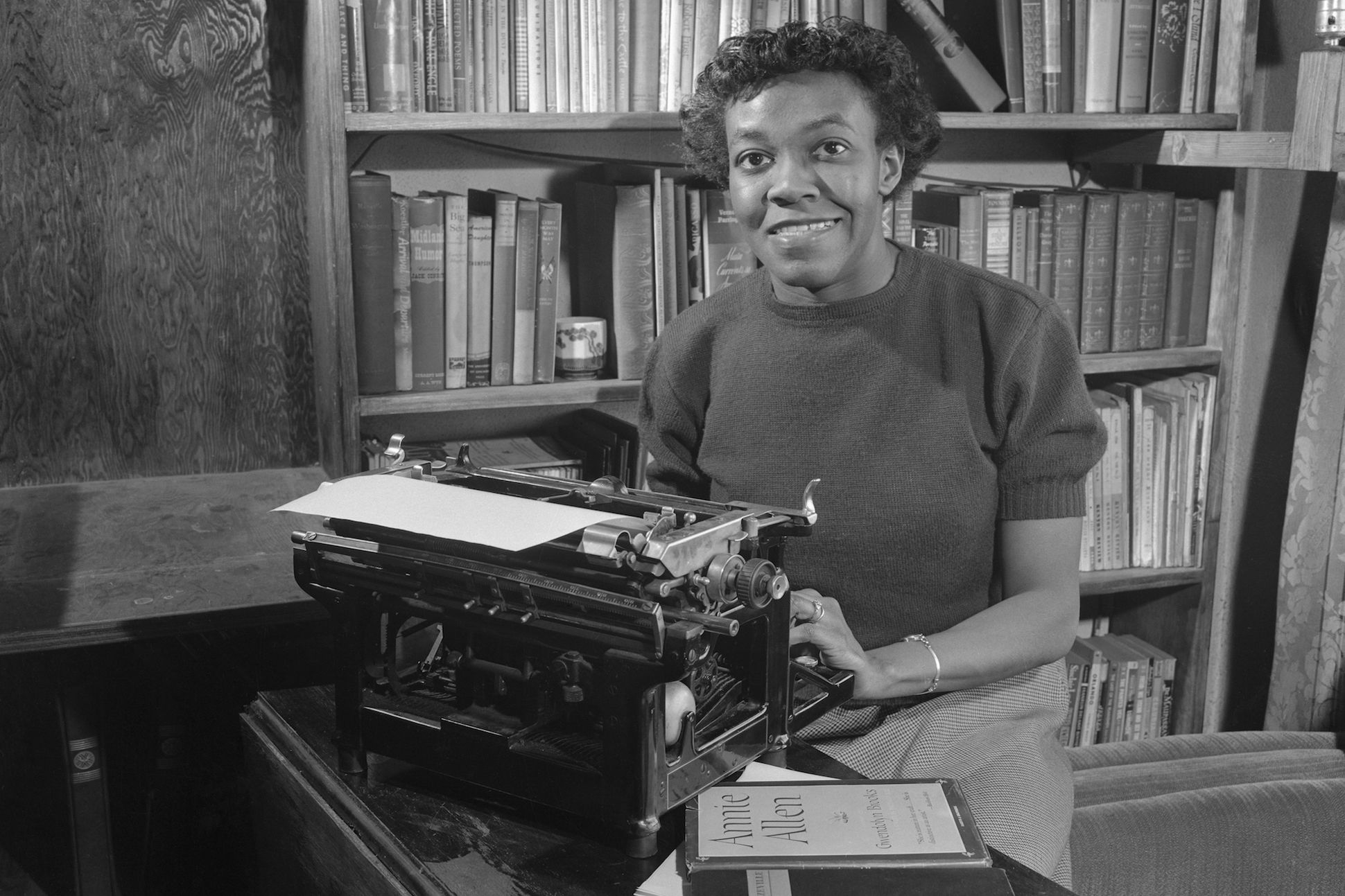Gyendolyn Brooks was one of the most influential poets of the 20th century and the first African American poet to win the Pulitzer Prize (1950). Her works deal with the everyday life of urban African Americans, combining Modernist techniques with Black idioms and phrasings. Her poetry collections include A Street in Bronzeville (1945), Annie Allen (1949), and The Bean Eaters (1960). In 1968 she was named the poet laureate of Illinois, a role she served until her death 32 years later. She was also the first Black woman to be appointed U.S. Library of Congress consultant in poetry.
Brooks was the oldest of two children in her family. Her father, David Anderson Brooks, was a janitor who had once attended medical school and dreamed of becoming a doctor. Her mother, Keziah Wims Brooks, was a schoolteacher and a classically trained pianist. When Brooks was just a few weeks old, her family moved from Topeka, Kansas, to the South Side of Chicago, which would later become the rich backdrop for her poetry. The language and everyday lives of the community’s African American residents would deeply influence her work.
Encouraged by her parents, Brooks began writing poetry at a young age. At just 13, she had her first poem, “Eventide,” published in American Childhood, a national children’s magazine. She also sent some early works to well-known Black writers like James Weldon Johnson and Langston Hughes, who offered her further encouragement.
Brooks graduated from Wilson Junior College in Chicago in 1936, and many of her early poems were published in The Chicago Defender, one of the most influential African American newspapers at the time.
Her first book, A Street in Bronzeville, captured her talent for turning the everyday lives of her neighbors into poetry. The title refers to the vibrant Black neighborhood in Chicago where Brooks lived, and the poems draw from the sights and sounds of ordinary places—vacant lots, backyards, hair salons, and small apartments.
As Illinois’ poet laureate, Brooks traveled across the state to speak at schools, colleges, prisons, and hospitals, always bringing her poetry to new audiences. In 1985–86, she served as the Library of Congress consultant in poetry (now known as the poet laureate), and in 1989, she received a lifetime achievement award from the National Endowment for the Arts. Over the years, she was awarded more than 70 honorary degrees from colleges and universities across the country.
In 1990, she became an English professor at Chicago State University, a role she held until her death. Today, her legacy is celebrated every year in Chicago on June 7, her birthday, during an event known as BrooksDay.




